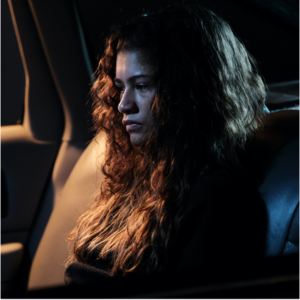17-year-old Reva Sobti asks if films and the media reflect society or magnify its darkest issues
One of the earliest memes to ‘break the internet’ was “David After Dentist”. It’s a two-minute video in which a child, still feeling the after-effects of the medication he had during surgery, starts pondering: “Is this real life?”
While this article does not intend to approach that question or give you an existential crisis, as with such mind-bending movies as Inception (2010) or The Matrix (1999), I do intend to explore the question of how film can affect our reality.
The big question for film fanatics like myself is: do movies mimic life or does life mimic movies?
To be honest, I don’t know.
Harbingers’ Weekly Brief
In this rapidly digitising age, a new problem has arisen. Daily consumption of media is inevitable as it grows increasingly available. In particular, films have come to cover numerous subjects from rom-coms to horror to docuseries depicting people from all walks of life and all types of behaviours.
We have seen the heroic archetype inspiring all of us to be better, but we have also seen the objectification of women, meaningless violence and simply unrealistic standards. My question is, do these depictions simply reflect reality or do they promote it?
Persistence pays off
I’m a huge fan of Bollywood, and yet when I was rewatching cult classics such as Dilwale Dulhania Le Jayenge (1995) and Kuch Kuch Hota Hai (1998), a pattern emerged through the glamour. Persistence: a firm and continuous action in spite of challenges.
In the Hindi rom-com cult classic, Andaz Apna Apna (1994), two broke guys set off to woo a rich heiress in hopes of inheriting her father’s fortune. Filled with plot twists, gag comedy, blockbuster songs and – harassment? While this movie is still one of my favourites, I still can’t help but feel a little uncomfortable at times.
One scene I remember in particular is set to a beautiful song, but when you press mute and pay attention to what’s on the screen, the scene shifts more into a thriller. One of the men relentlessly chases the girl who he presumes to be the heiress as she is walking through the park. Not only is he literally stalking her, but proceeds to physically harass and pester her as she tries to get him to stop.
But wait for the punchline – his grand masterplan is to get her so irritated with him that she hits him with a stick, so he can pretend to have amnesia. How do they even come up with this? The best part isn’t even over. He then wakes up, pretending to have forgotten everything and demands to go home with her.
And who would have guessed, they fall in love and live happily ever after.
This is just one example of many Bollywood movies employing the trope of persistence, where the main character, usually a man, keeps chasing the girl until she falls in love with him.
It may seem wholesome and cute when we watch the movie, but what these scenes imply is that harassment, teasing, sexual assault, stalking, ignoring consent are all OK because you are meant to be together and she just ‘doesn’t know it’.
In Australia a decade ago, a 32-year-old security guard, Sandesh Baliga, pleaded guilty to stalking two women, but was not sent to jail. Why not? His lawyer argued that the rhetoric from these films makes men believe they can keep pursuing women after being rejected.
Baliga claimed he was remorseful and was unaware of the difference in social norms in Australia compared to India. Delhi journalist Kanika Gahlaut thinks that the ‘Bollywood hero’ represents Indian men to some extent: “They have an unusually high sense of entitlement; a sense that they are a star in the relationship, even if it’s a misplaced sense, and feel a woman is to look after their mental, emotional, physical needs.”
And it’s not just limited to Bollywood. American rom-coms such as 10 Things I Hate About You (1999) or The Notebook (2004) also have this theme of persistence, including a scene in the latter where the main character hangs from a ferris wheel, threatening his own life, until the girl agrees to go on a date with him.
So the question remains, do these movies truly teach men to harass, catcall and assault women in the name of love, or is misogyny already so ingrained in our society that these depictions are necessary in movies to accurately represent us?
The ‘Euphoria’ effect
I have always been a bit of a romantic – if you couldn’t already tell by my love for Bollywood. When I was younger, teen movies such as To All the Boys I’ve Loved (2018) and Mean Girls (2004) were my favourite. Now I’m the same age as these characters, but I’ve come to realise that high-school life isn’t the party these movies made it out to be.
Let’s take a look at Euphoria, a US drama series launched in 2019 that follows the life of troubled teens and their struggles with relationships, drugs, domestic violence and self-harm. The show is dark; we follow the life of our protagonist, 17-year-old Rue (played by Zendaya), along with her struggles with addiction. Some call it a ‘coming of age’ show, but with the highly mature content it covers, it’s a very exaggerated version of a teenager’s life.
The cast is gorgeous, but most of them are in their twenties, a bit too old to be playing the role of a teenager (such casting decisions are seen throughout teen media in Hollywood as finding strong teen actors, understandably, can be difficult).
However, the problem lies in the unrealistic body standards the cast pushes on to the audience. A teenager watching a mid-twenties Jacob Elordi and Sydney Sweeney may think that their highly idealistic, model bodies may be the ‘standard’, but we know that isn’t the case for full-grown adults, much less developing young adults.
However, Euphoria has altered the perception of drug abuse. While it may not be a realistic depiction of most teens’ lives, it does do a good job at showing the nuances of those struggling with addiction.
This was backed up by a 2024 studypublished in Social Science Quarterly, which examined the attitudes of Gen Z respondents to how drug abuse was portrayed in Euphoria. The study found that, after watching the show, people were more likely to be sympathetic towards those suffering from addiction.
This study also showed that our generation can reflect on a show that covers hot topics of debate, such as the one around drug control. Hence what the study calls “the Euphoria effect”.
So, perhaps my initial question wasn’t the greatest. Movies may not necessarily mirror society, but rather magnify and illuminate specific aspects. It may bring attention, both good and bad, to varying issues, but it can also be a harrowing generalisation if we don’t step back to look at the bigger picture.
So maybe movies do change our perspectives on the world around us. We certainly learn a lot from them, but perhaps we should reflect on what young David said as well: “Is this real life?”
And more importantly: “Is this my life?”
Written by:

The Harbinger Prize 2024 (Overall Winner)
Writer
United States
Reva Sobti was born in 2008 and currently studies in the United States. She plans to pursue a higher education at one of the T-25 universities to major in Sociology, Business, or Biology. Reva won the Harbinger Prize 2024 and plans to continue writing about social issues.
After successfully completing the Essential Journalism course, Reva became a writer for Harbingers’ Magazine starting in March 2025.
In her free time, she loves to read, watch movies, bake, play volleyball, and eat good food. A fan of travelling, Reva has so far visited 16 countries.
She speaks English, Hindi, Punjabi and Spanish.
Edited by:

🌍 Join the World's Youngest Newsroom—Create a Free Account
Sign up to save your favourite articles, get personalised recommendations, and stay informed about stories that Gen Z worldwide actually care about. Plus, subscribe to our newsletter for the latest stories delivered straight to your inbox. 📲
© 2025 The Oxford School for the Future of Journalism



